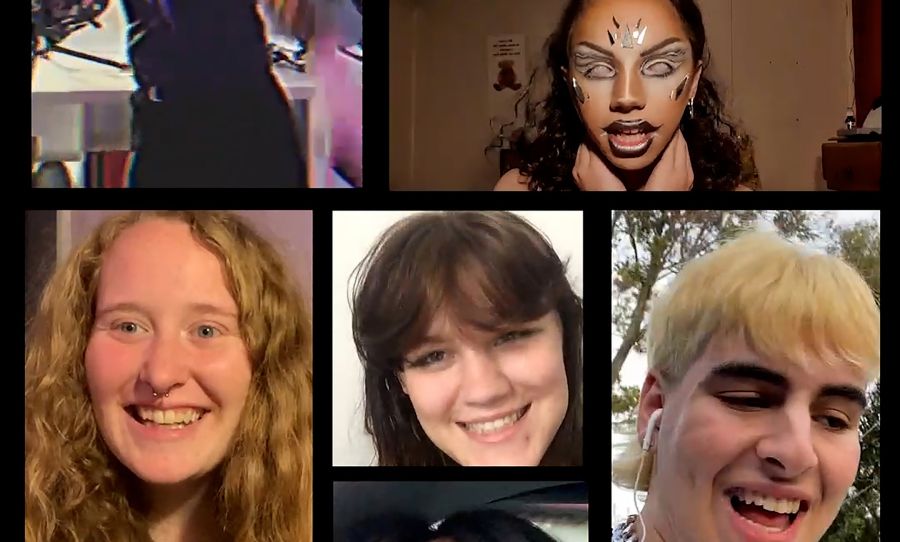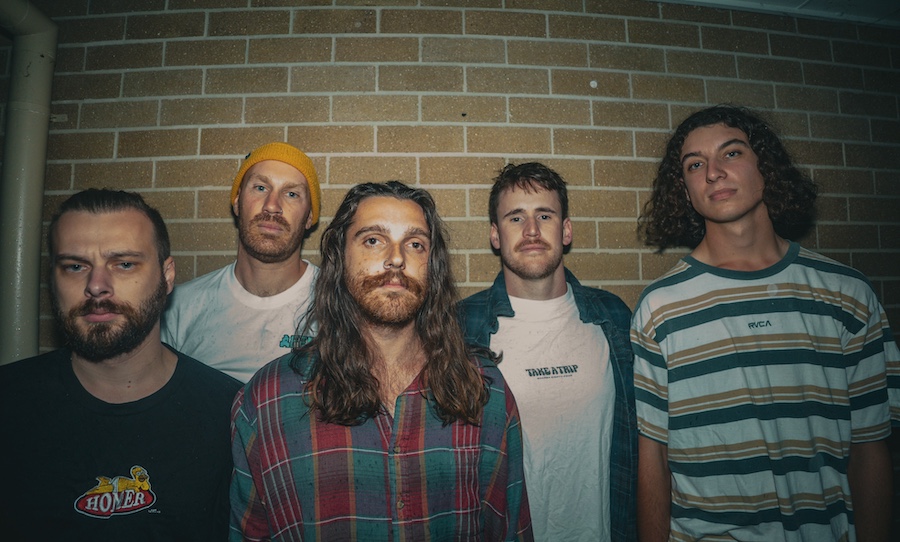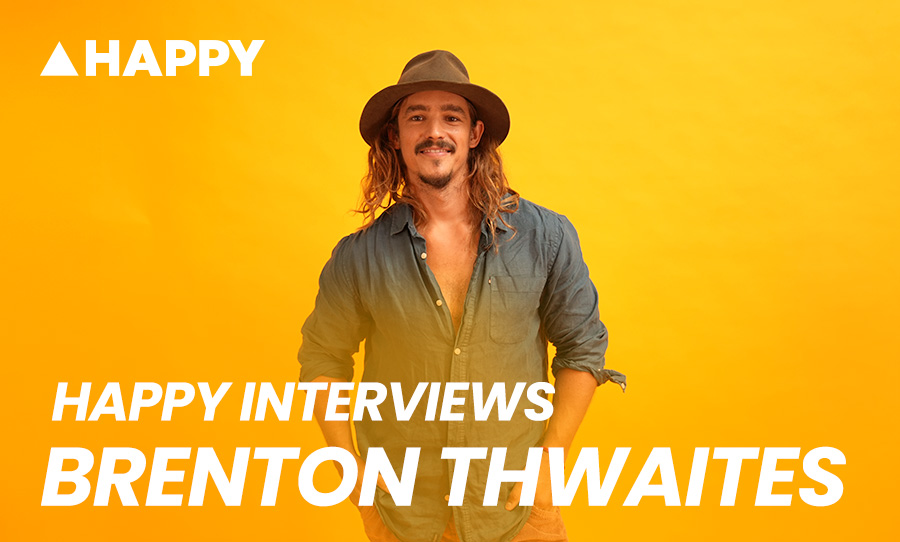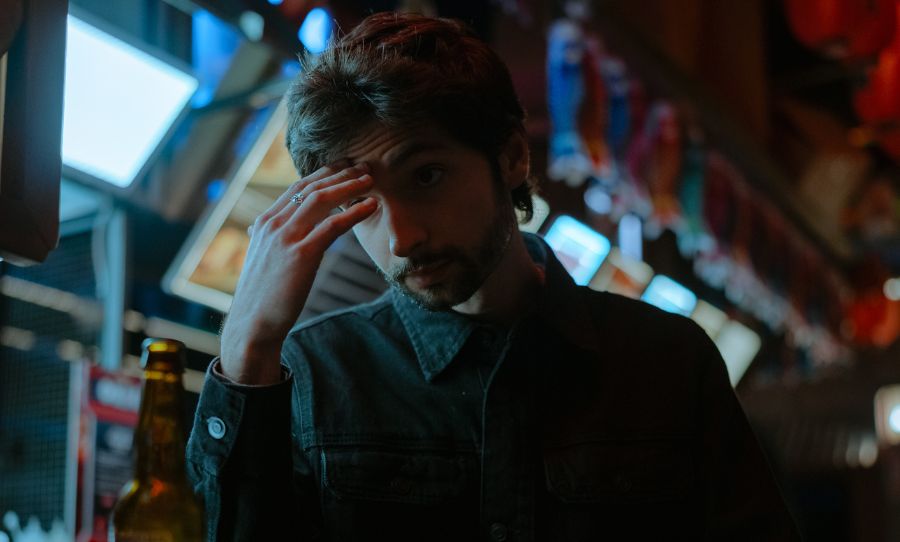Dive into the unfiltered universe of youth and identity as we chat with Lee, the leading light in ‘Unerased.’
Released on August 20th via Instagram and TikTok, across 17 raw and unapologetic episodes, ‘Unerased‘ hands the spotlight to its teenage stars, inviting them to share their stories with open and honest candour.
Today, we have a chat with Lee (they/them), a luminary of ‘Unerased.’ Join us as we delve into their passions, growth, and odyssey of self-discovery. From embracing authenticity to traversing life’s convoluted pathways, Lee unveils how ‘Unerased’ has reshaped their worldview, scars and healing alike.
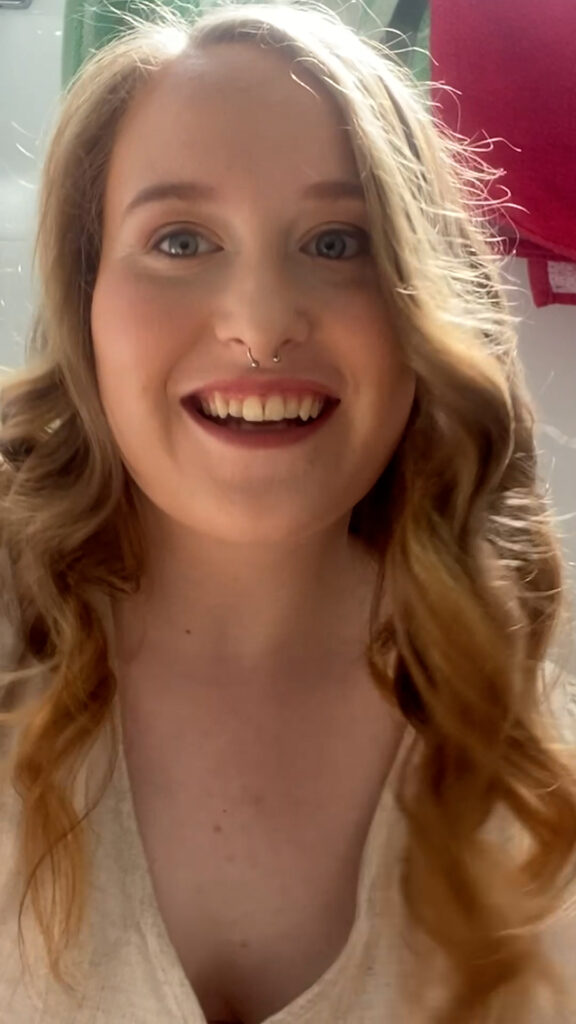
Happy: How did you come across the opportunity to participate in Unerased, and what inspired you to take part?
Lee: I had previously auditioned for a short film that wanted a non-binary lead however was not chosen for the part. After the short film came out, the director was advertising the callout for AP’s documentary on their story.
I decided to give it a shot as I have wanted people to see not only my story as a non-binary person, but my meaningful story of the life challenges I have been through to be where I am today.
Happy: Reflecting on your journey so far, how has this project played a role in your personal growth and self-discovery?
Lee: The docuseries has allowed me to be so much more confident with my online presence as it seems now that a lot of people are going to see my face!
I can allow my bold and bubbly personality to blossom more with my online content and people will understand that this is me all the time and not just in front of a camera.
Happy: Unerased has provided you with a platform to open up about your journey, including your relationship with your late mother. Can you talk about the emotional process of sharing these intimate aspects of your life, and what kind of impact has it had on your healing process?
Lee: I was definitely hesitant to open up about my story about my mum as I felt as though it would come off as asking for sympathy from the audience.
It is also a very private thing to share with other people, let alone the world and I did not want to feel like I was disrespecting my mother by sharing this.
However through the guidance of AP and other cast members, I understand just how important this is going to be to other trans and gender diverse people who are in the same shoes as I am.
It has been a few years since my mother passed so I am at peace with most things but there is still those questions (Would my mum have accepted my gender identity?
Would my mum have accepted my name change?) I have left unanswered that come back to me every now and then.
View this post on Instagram
Happy: Graduating high school is a big milestone. How has the loss of your mum influenced your perspective on this achievement and the person you’ve become?
Lee: It was definitely hard to realise that I would only have one parent around to see my achievement of graduating highschool but I know that my major work I did for Visual Arts was my way of including my mum with my final year in high-school. It was also a therapeutic way of honouring her presence in my life as a mother.
Happy: Reflecting on your journey, what aspects of yourself do you think your mum would be most proud of today?
Lee: I believe my mum would be most proud of how much I have been able to handle life as a teenager. Without my mum around, I had to look to my aunties and cousins for questions about puberty growing up because I had no idea what was happening to me. I’ve had to handle a lot of stress on my own when I felt like I couldn’t talk to anyone about it and knowing I graduated and can now be a positive influence for other young trans people, I feel my mum would be proud of the guidance I can bring for others.
Happy: Affirming your gender is an essential part of your story. Can you share a moment when you felt the most empowered and validated on this journey?
Lee: I felt the most empowered when I saw Lee on my graduation certificate. For so long I had anticipated seeing my deadname on my graduation certificate as a welfare teacher had told me that to change my name on school reports meant that it could conflict with paperwork down the line.
A part of me had accepted I was going to see my dead name on the certificate but I had the most ecstatic face when I saw that my name change had been represented at my graduation. To know that my school had been behind me and supported this, made me feel so safe and seen for who I am.
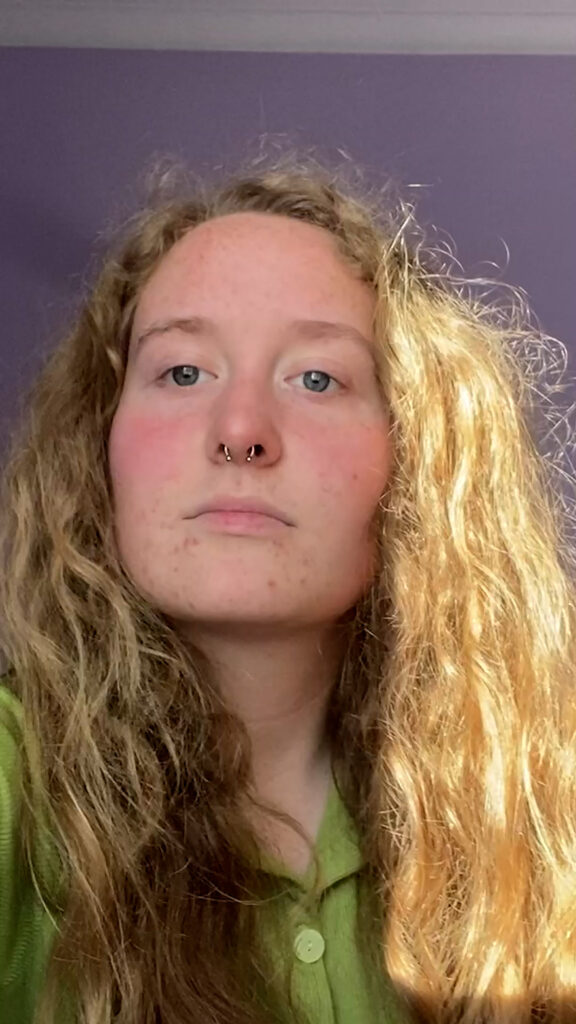
Happy: Year 12 comes with its own set of challenges. How do you envision using this platform to support others who might be facing similar struggles?
Lee: This docuseries really is the gateway of younger trans people seeing all of us go through our senior years and being able to handle it all. I know for myself, just seeing other people go through the same things I am, really helps me know that it is possible to get through it and still feel like myself. With the diversity of the cast, I can see so many younger trans people feeling a part of themself represented by the struggles or identity of the cast members.
Happy: Looking back on your high school years, what’s a lesson you’ve learned that you wish you could share with your younger self?
Lee: I wish I had learned a little earlier to not worry so much about other peoples opinions so much. In primary school I was bullied quite a bit and so going into high-school I had a lot of anxiety that people wouldn’t like me if I showed them who I really was so I kept myself in a very small bubble and tried not be weird.
In my senior years I definitely learned that there will be people that won’t like me but they aren’t worth keeping around if that is the case. From then on, I embraced my full self. My motto was “If they dont like what I’m doing, that’s their problem”.
I finally felt like I was putting myself first and stopped caring about what others thought because I am bold and weird but that’s who I am.
View this post on Instagram
Happy: How do you manage to stay focused on your academic goals while also navigating your personal journey of self-discovery?
Lee: Although school is a huge part of a young person’s life, In my senior years I did my best to make sure school didn’t become my life.
I had a very relaxed attitude at school and mainly thought to myself before exams “You can only do your best, then you’re done”. I never was very worried about academic goals too much as I put my wellbeing first which allowed me to still live as a teenager.
Because of this, I was still able to know myself and my identity while at school. We also had an LGBTQIA+ group at my school which I became a role-model for younger students once I was a senior as they could look up to myself and other seniors and see how we navigated school and our identities at the same time.
Now being in a documentary on social media apps that they use, I hope to be a role-model for so many young LGBTQIA+ people everywhere.
Happy: What role does art and self-expression play in your life, and how does it help you cope with difficult emotions?
Lee: My art allows me to show what I’m feeling when I can’t use or have no words to describe what I am feeling. Art is such a universal form of expression and it can be done by anyone in so many different ways.
In the documentary, I paint watercolour portraits of the women in my family who became maternal figures for me once my mum passed.
Since then, I find myself mainly using writing as my form of expression due to my love of creative writing and I find it to be a therapeutic way to rant about anything I’m struggling with at the time. I can write about what I am feeling and make it sound tragic, beautiful, funny or anything I want.
Happy: Your journey seems to intersect with the broader theme of resilience. Could you tell us about a moment when you surprised yourself with your own strength?
Lee: Growing up, I lived in a house with four boys (my dad and 3 brothers) and my mum. My mum let me explore my femininity and my brothers allowed me to explore my masculinity.
After my mum passed, it became very blurred what I should act and be like. When I was 15, I identified with the gender-fluid label, presenting as masc some days, presenting as femme others, and sometimes just androgynous.
After a while, I found myself identifying with androgyny the most. I found the label non-binary and realised that was most like me. However I also don’t let this label totally define me.
I talk about it in the documentary that the perception most non-binary give is an androgynous presenting person who is skinny, white and has dyed hair. As someone who presents as very femme and cis, I do get misgendered daily, however it does not bring me any major dysphoria.
It took strength for me to realise that I can identify with being non-binary and still present as femme as gender expression does not equal gender identity. I feel so free knowing who I am.
Even though I identify as non-binary and I present as femme, I know that to me, I am just human.
Happy: How do you envision your life post-graduation, and what steps are you taking to build the future you want for yourself?
Lee: Post-graduation, I am still very unsure of what I want to do. Ideally, I would love a job that involves creative writing, however I know it requires a lot of self-discipline and motivation but also, the chances of making a living can be tricky too.
I have hopes to publish a Young-Adult novel some day, but that depends if my ideas ever leave the lonely word document on my laptop.
I tried studying at TAFE earlier this year, however after spending 13 years of my life in school, I am a bit over it.
Currently I spend my days working at my job and maintaining my friendships and relationships with family.
View this post on Instagram
